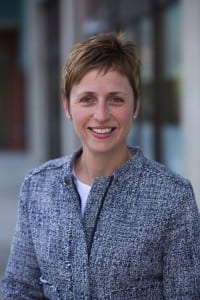August 17, 2018 Blog
Defending DAFS: What Your Community Foundation Wants You To Know
 Do donor advised funds (DAFs) “represent the worst of philanthropy today”? Are they “a fraud on the American taxpayer”? A “shadow giving system”? Recent national media reports have colored DAFs with broad strokes of suspicion, characterizing them as a turnkey and nefarious tax loophole for the very wealthy.
Do donor advised funds (DAFs) “represent the worst of philanthropy today”? Are they “a fraud on the American taxpayer”? A “shadow giving system”? Recent national media reports have colored DAFs with broad strokes of suspicion, characterizing them as a turnkey and nefarious tax loophole for the very wealthy.
DAFs are not a tax evasion tool. The model was created in 1931 by a community foundation to encourage giving and engage donors. It’s true that DAFs do offer donors tax benefits—much like other charitable contributions made directly to other non-profit organizations. And, like a one-time gift to a non-profit, once a DAF is established, the asset now legally and irrevocably belongs to the foundation or financial institution. In short, no one establishes a DAF and walks away richer. That money can never be used for personal benefit and is committed to serve charitable needs—which is great for our region.
DAFs are one of the prime vehicles for donor giving among the 750+ community foundations in the United States. Here at the Community Foundation of Western Massachusetts (CFWM), DAFs account for about 200 of over 500 funds we administer. In 2017-2018, CFWM granted out $9.7M to non-profit organizations and for college scholarships and interest-free loans. $4.5M (46%) of these grants came from recommendations made from DAFs. DAFs are integral to how we facilitate generosity—and improve the quality of life for people in the Pioneer Valley.
To be frank, there are concerns about how DAFs are administered through commercial charities sponsored by financial firms. In the world of philanthropy, professional advisors should not receive bonuses when their clients establish a charitable fund, but it can happen with some of the commercial gift funds. At CFWM, we do not participate in this practice, and view it as unethical. Furthermore, there’s good reason to closely examine the potential conflict of interest between a commercial charity and its financial parent. But these concerns should not reflect on the legitimacy and value of the DAF as a vehicle to promote more giving in this community—or the reality of how DAFs function at most community foundations.
Since our founding in 1990, CFWM has helped donors who want to support the local community. Simply put, we’ve found DAFs to be one of the most effective ways to encourage giving. DAFs are a flexible tool for donors that provide personalized and long-term support for their philanthropic journey. They offer a streamlined and simple way to get an individual or family’s charitable dollars into the community in a way that fits their giving philosophy and style. DAFs are less expensive and administratively burdensome to the donor than the costs of establishing a private foundation. At CFWM, our fundholders often use DAFs as an opportunity to introduce and involve their children and grandchildren in philanthropy. Through our grantmaking, they can learn about new local nonprofit initiatives that they might not otherwise know about. As a result, nearly 93% of CFWM DAFs made grants in the last 36 months, with 62% making grants from their funds in the last fiscal year. Our annual distribution rate hovers around 16%–more than three times the 5% that is required of private foundations. We’ve also found that the DAF model encourages some donors to contribute more money to charity than they might otherwise. DAFs offer a flexible, personalized, and turnkey tool to the philanthropically minded in our region, successfully encouraging active giving and investment in our community as a whole.
In theory, all DAFs are created equal. However, the fulfillment of their original intended function—to fund and support the greater good—ultimately depends on the integrity and the community connectedness of the institution where these funds reside. At CFWM, we have tirelessly endeavored to ensure that the generosity of our donors is stewarded to sustain and enrich the greater good of all who reside in the Pioneer Valley.
-Katie Allan Zobel
President & CEO